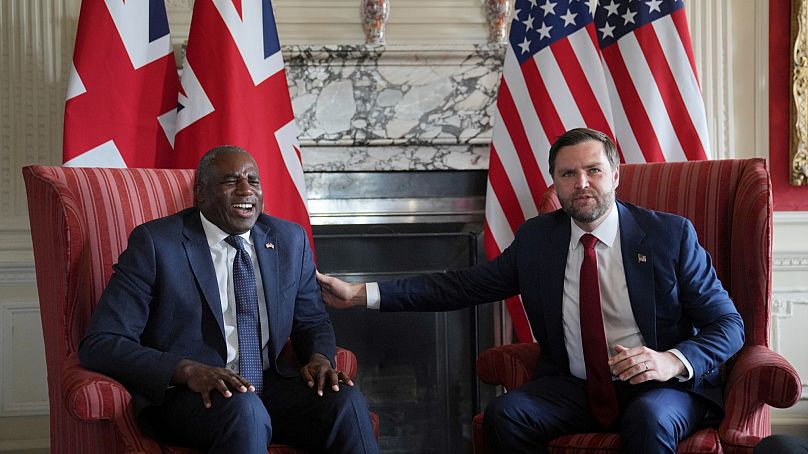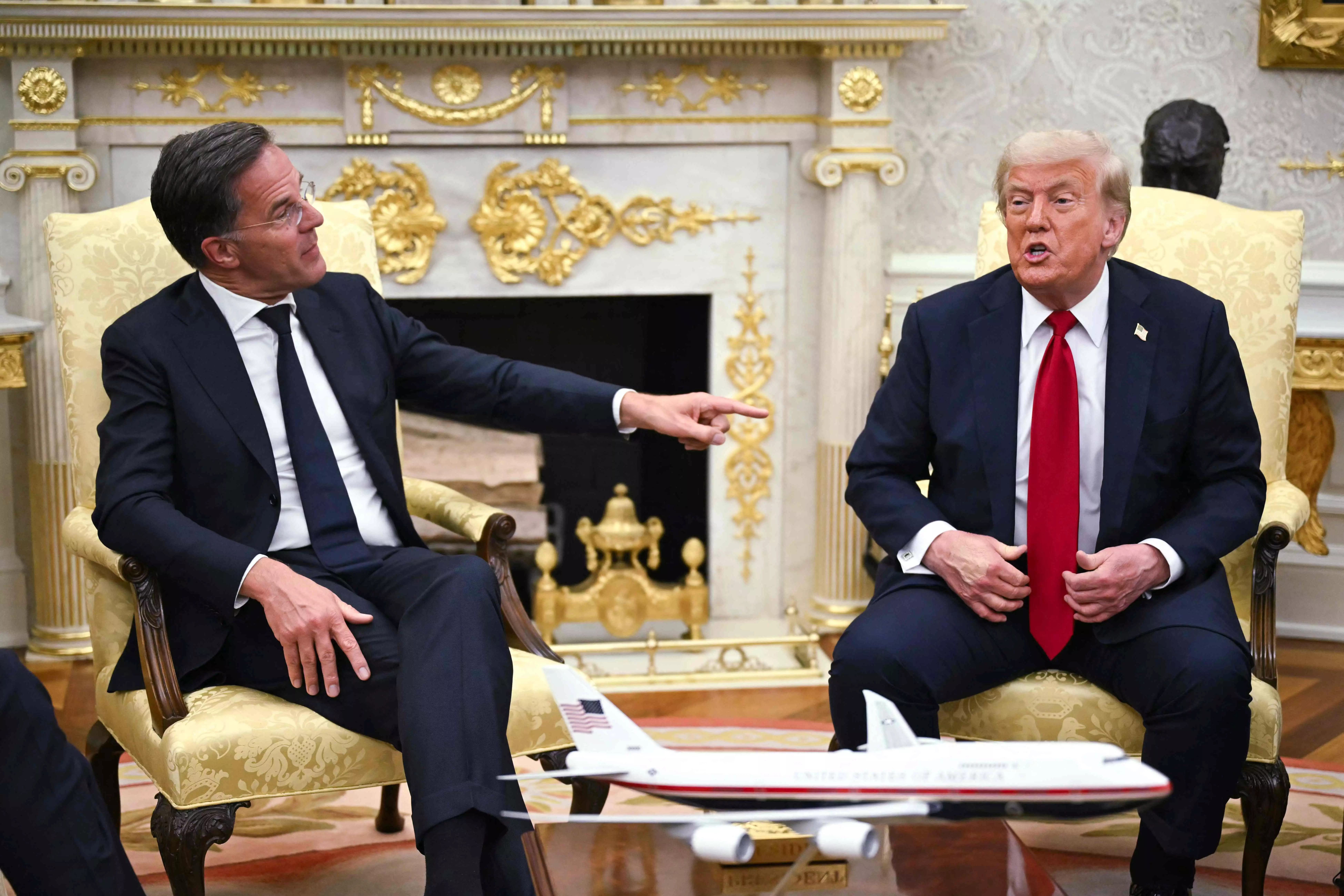Global Alarm: Europe Shaken by Impending US-Russia 'Alaska' Summit
European foreign ministers convened an emergency meeting on Monday, emphasizing the critical need for "transatlantic unity" to bolster support for Ukraine and intensify pressure on Russia. This urgent assembly, which included Ukrainian Foreign Minister Andrii Sybiha, was called ahead of an anticipated summit between US President Donald Trump and Russian President Vladimir Putin. Kaja Kallas, the EU's chief diplomat, stated that ministers expressed support for US initiatives aimed at achieving a just peace. She stressed that "Transatlantic unity, support to Ukraine and pressure on Russia is how we will end this war and prevent future Russian aggression in Europe." Kallas also confirmed ongoing efforts to implement more sanctions against Russia, increase military and budgetary aid for Ukraine, and facilitate Ukraine's EU accession process.
The meeting was hastily arranged after the announcement of the Trump-Putin summit scheduled for August 15 in Alaska. While Ukrainian President Volodymyr Zelenskyy is not expected to attend the primary summit, Trump has expressed a desire to chair a trilateral meeting involving the Ukrainian prime minister. This upcoming summit has triggered significant concern among European heads of state, who fear being excluded from a potential deal that they would largely be responsible for upholding. In a joint statement, leaders from Finland, France, Germany, Italy, Poland, the UK, and the European Commission firmly reiterated their position: "the path to peace in Ukraine cannot be decided without Ukraine." They also rejected Putin's ceasefire proposal, which suggested a trade of Ukrainian territories, insisting that "the current line of contact should be the starting point of negotiations." The leaders underscored their European unity and determination to collectively advance their interests, vowing to "continue to cooperate closely with President Trump and with the United States of America, and with President Zelenskyy and the people of Ukraine, for a peace in Ukraine that protects our vital security interests."
However, Europe's exclusion from the Alaska meeting has sparked debate regarding the influence of EU diplomacy on the global stage. Alberto Alemanno, an EU law professor at HEC Paris, views this as a clear indication of Europe being sidelined. He commented that the Alaska meeting presents "yet another moment of truth for Europe because the European Union finds itself on the sidelines in what could be the most consequential peace effort since the war began, with Trump and Putin set to meet without any European leader officially invited to the table." Alemanno highlighted that Europe is now focusing its efforts on securing a place at the negotiation table for President Zelenskyy. Yet, recent threats from the US to withdraw financial support for Ukraine's defense have made Europe cautious. Alemanno explained that "The EU seems to lack leverage in actually inviting the US to be invited or to be heard, simply because we heard from Vice President Vance that the US is ready to give up its support for Ukraine unless the European Union steps in." He concluded that European leaders are in a difficult position: too much commitment to Ukraine risks isolation, while insufficient commitment could lead to a detrimental deal for Ukraine.
Jacob Kirkegaard, an expert at the Bruegel think tank, concurred, attributing Europe's exclusion to its relative weakness in defense. "We are paying the price of our inability to defend ourselves and our inability to adequately support Ukraine. And that means that when you don't have actual power, you will not be invited to this meeting," Kirkegaard stated. He emphasized that any agreement reached by Trump and Putin cannot be enforced against the will of Ukraine and Europe. Kirkegaard also warned that any deal detrimental to Europe's security interests would undermine NATO. He stressed that if the US, as NATO's primary security power, signs a deal favorable to Russia—NATO's direct military antagonist—then "NATO is dead, finished... it's buried and it's over." He added, "Our problem is that we are not capable... to deter Russia on our own."
Ahead of the Alaska talks, Donald Trump's suggestion of a territory exchange between Ukraine and Russia as part of a ceasefire deal was resoundingly rejected by Zelenskyy and strongly opposed by European leaders in their joint statement. Despite these concerns, key European leaders, including German Chancellor Friedrich Merz, French President Emmanuel Macron, and British Prime Minister Keir Starmer, are scheduled to chair an emergency meeting of the 'coalition of the willing' on Wednesday, which both Trump and Zelenskyy are expected to join. Leaders from Italy, Finland, Poland, NATO's Secretary-General, Ursula von der Leyen (European Commission), and Antonio Costa (European Council) are also anticipated to participate. France has indicated that other videoconference meetings, including one with President Trump, will occur on the same day. While Ukraine remained the central focus, the dire humanitarian situation in Gaza and broader developments in the Middle East were also on the agenda for Monday's foreign affairs council meeting.
Recommended Articles
Europe's Stance Tested: Allies Scramble to Support Ukraine as Russia Intensifies Strikes

Europe is concerned about being excluded from critical US-Russia talks in Alaska, fearing its security interests may be ...
Global Gamble: Ukraine's Fate Hangs in the Balance as US-Russia-EU Talks Intensify

Europe found itself initially sidelined from the critical US-Russia Alaska summit concerning Ukraine, raising concerns a...
Europe Rallies for Ukraine: Leaders Push for Peace Amid Russian Aggression and US Uncertainty

A high-stakes diplomatic flurry unfolded as European leaders sought to sway US President Donald Trump ahead of his summi...
Geopolitical Chess: Trump's Russia Sanctions Set Stage for High-Stakes Alaska Summit with Putin

US President Donald Trump announced new weapons for Ukraine and threatened sanctions against Russian export buyers, prec...
Global Chessboard: Trump Navigates Ukraine-Russia Tensions

Polish President Karol Nawrocki's inaugural visit to the US highlights efforts to strengthen the strategic alliance with...
You may also like...
From Etisalat to 9mobile to T2: The Rise, Retreat, and Reinvention of Nigeria’s Fourth Operator

From a meteoric rise to a challenging retreat, Etisalat Nigeria’s evolution into T2 tells a story of resilience, wins, a...
Boxing Blockbuster: Jake Paul and Gervonta Davis Set for November Showdown

In a surprising announcement, Jake Paul is set to face WBA lightweight champion Gervonta "Tank" Davis in an exhibition b...
Carabao Cup Shocker: Grimsby Stuns Man Utd in Penalty Thriller

Manchester United suffered a shocking Carabao Cup exit after losing 12-11 on penalties to League Two side Grimsby Town. ...
Venice Stunner: Paolo Sorrentino's 'La Grazia' Captivates Critics with Record-Breaking Ovation!

Paolo Sorrentino's new film “La Grazia” opened the Venice Film Festival to critical acclaim, presenting a nuanced portra...
The Hunt for 007: Frontrunners Out, Legends Back, New Details Emerge in Bond Saga!

The search for the next James Bond intensifies as actors like Taron Egerton and Glen Powell rule themselves out, while M...
Reading and Leeds Festival Plunged Into Chaos by Secret Set Leaks and Star's Last-Minute Snub

Reading and Leeds Festival 2025 is buzzing with fan speculation about secret sets from The Foo Fighters and Chase & Stat...
Naira Marley Breaks Silence on Mohbad's Death Amid Mounting Controversy

Musician Naira Marley has publicly addressed the controversial death of his former signee, Mohbad, sharing his side of t...
Pete Davidson's Paternal Bliss: Comedian's Dream of Fatherhood Comes True with Elsie Hewitt

Comedian Pete Davidson and model Elsie Hewitt are expecting their first child, announced via Instagram by Hewitt. Davids...